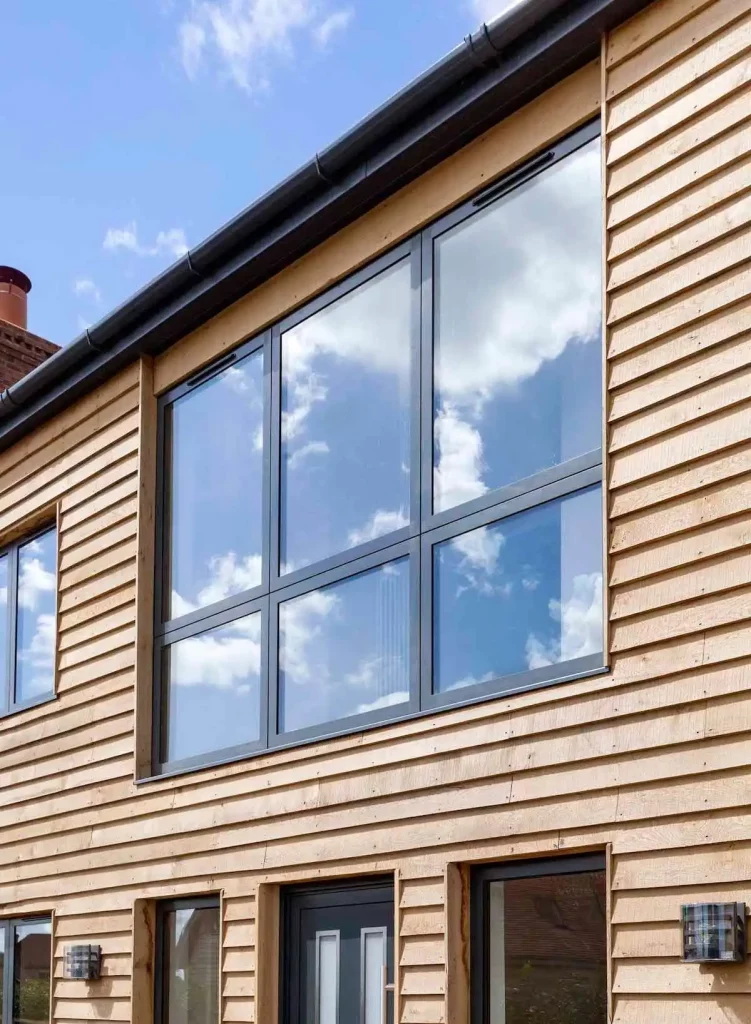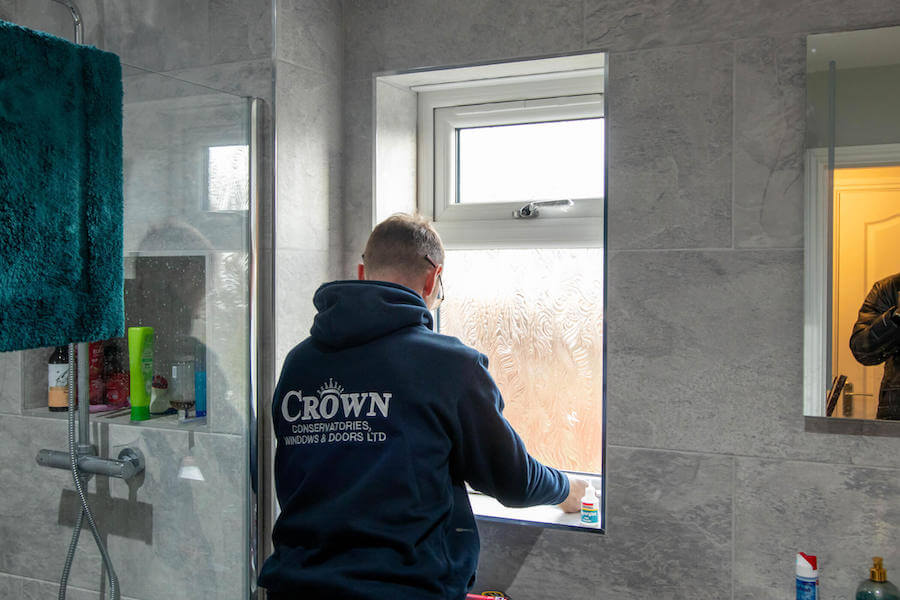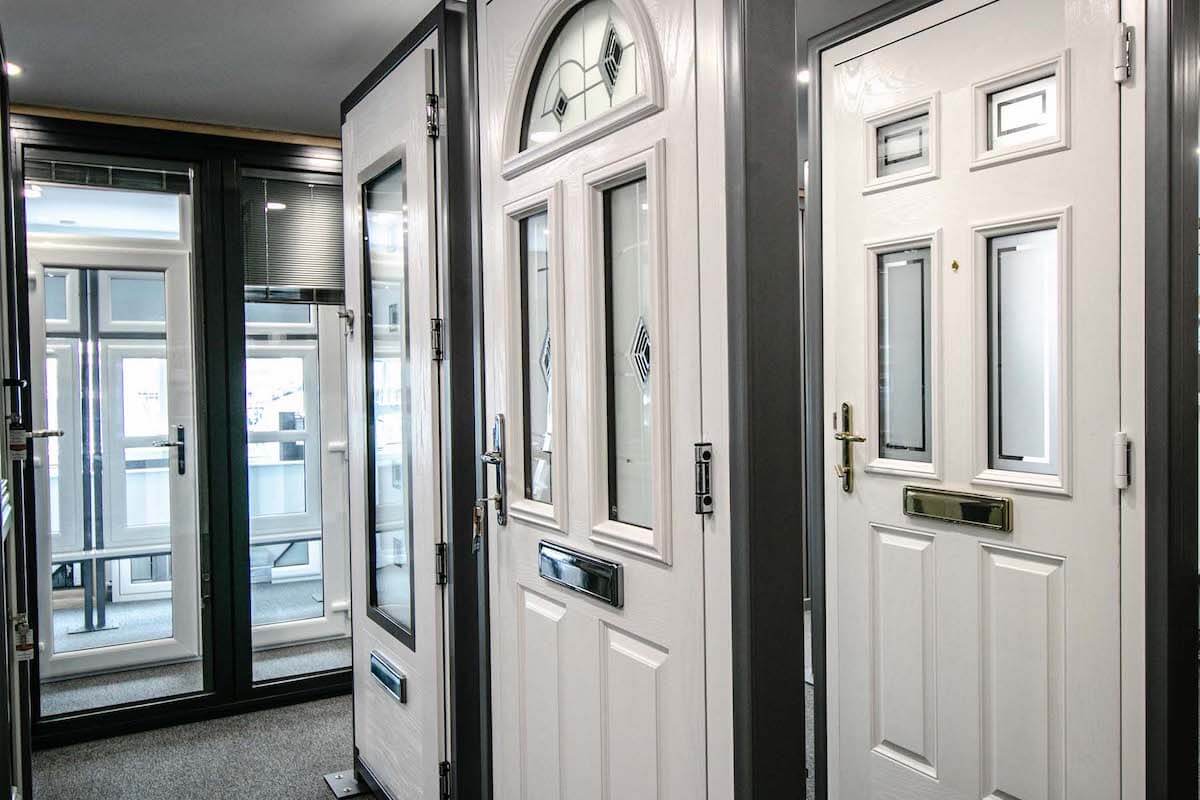Double Glazing Maintenance Guide: Maximising Performance and Lifespan in Milton Keynes Climate
- 9 June 2025
- News
Double glazing is now standard in many Milton Keynes homes, helping keep heat in during cold winters and out during summer. However, even the best windows need care. Year-round maintenance ensures your investment continues to pay off – reducing drafts, preventing moisture problems, and prolonging lifespan. Because Milton Keynes weather can be unpredictable – cold, damp winters and warm, sometimes humid summers – regular check-ups are key to energy-efficient, trouble-free windows. This guide lays out season-by-season tasks and practical tips (cleaning, lubricating, inspecting seals, optimising ventilation, and more) to help homeowners keep their double glazing in top shape and double glazing Milton Keynes-ready.

Seasonal Maintenance: Winter vs Summer Tasks
- Winter: Before the cold sets in, inspect windows for gaps or damage. Clear debris from drainage holes to prevent water buildup. Check seals around frames and sills – even tiny cracks let in cold air and moisture. Seal any gaps with weatherstrip or caulk to stop drafts. Ensure trickle vents (those small built-in vents on uPVC frames) are open; they let humid air escape and reduce condensation. Inside, move furniture or curtains away from windows (leave about 15–20cm clearance) to allow warm air to circulate and keep glass surfaces warmer. Use bathroom/kitchen fans or a portable dehumidifier to cut down indoor humidity, which otherwise condenses on cold windowpanes. If you spot persistent fogging between panes (a sign of seal failure), plan to get the glass unit replaced – symptoms like “misted up” glass are a common reason to call an installer.
- Summer: When temperatures rise, clean windows thoroughly inside and out. Remove pollen, dust, and grime so light can enter and seals stay visible. Inspect frames for any damage (insects, birds, or small cracks from thermal cycling). Pay special attention to uPVC – clear away any dirt in the bottom track or drainage slots. Open windows periodically to air out the house and reduce heat (in very hot rooms, using blinds or awnings at midday can limit solar gain). After summer storms or winds (common in Milton Keynes), check all fastenings and gutters near windows to make sure nothing has loosened or blocked your eaves and rooflines. In short, summer maintenance focuses on cleaning and inspection, preparing your windows to perform efficiently when the cold returns.
Cleaning by Frame Type
- uPVC Frames: Clean every 3–6 months (more often if needed) with warm soapy water and a soft cloth. Avoid harsh chemicals or solvents – bleach, white spirits or abrasive cleaners can cause fading or damage. For stubborn stains, use a non-abrasive uPVC cleaner sparingly and buff with a soft cloth. Inside the frame tracks and joints can collect dust – fully open windows and brush or vacuum out debris. Rinse off soap residue and wipe dry. Cleaning the rubber gaskets and seals (with diluted detergent) prevents mould growth and keeps them pliable. For coloured or woodgrain foiled uPVC, use only mild soap and water and touch-up any tiny scratches with the matching pen.
- Aluminium Frames: Wipe aluminium and powder-coated frames with a mild detergent solution. A soft cloth or sponge is ideal; avoid steel wool or harsh scouring pads that could scratch the finish. Aluminium is durable, but its sealants (silicone or rubber gaskets) should still be cleaned gently. If aluminium has become dull or dirty, a diluted non-abrasive household cleaner will lift grime. Rinse thoroughly and dry to prevent water spots. (In practice, aluminium care is very similar to uPVC: regular mild cleaning and drying keeps frames looking new.)
- Timber (Wood) Frames: Wood needs more care. Clean timber frames once or twice a year with warm water and a few drops of mild detergent. Use a soft cloth (or soft-bristle brush for crevices) and rinse carefully – never soak the wood. After cleaning, inspect the paint or varnish. Any peeling, cracks or bare patches should be sanded lightly and recoated. A professionally applied exterior paint or stain usually lasts 5–10 years, but exposed wood on older Milton Keynes homes (especially in conservation areas like Stony Stratford) may need annual touch-ups. When treating wood, always prep (clean and sand) the frame before applying paint or varnish, following manufacturer’s instructions. Properly maintained timber frames resist moisture and add classic style to Milton Keynes homes.
- Glass Panes: Clean glass regularly with your preferred window cleaner or a homemade mix (e.g. one part white vinegar to four parts water). Use a lint-free cloth or squeegee for streak-free results. Avoid using abrasive tools or cleaners on glass. When cleaning, remove jewelry or watches to avoid scratching. If marks remain (e.g. paint drips or stubborn grime), a soft toothbrush with a bit of soapy water can reach crevices. Always clean both sides of the glass; hiring a professional window cleaner once a year can help with hard-to-reach panes. As noted by other experts, clean windows not only look better but also help you spot small faults (like frame cracks or seal gaps) before they worsen.

Lubrication and Hardware Care
Every few months (at least twice a year), lubricate all moving parts to keep them smooth and prevent wear. Use a silicone-based lubricant or light machine oil (not grease) on hinges, locks, handles, and sliding tracks. For example, spraying WD-40 (a silicone lubricant variant) into door and window hinges protects against rust and keeps the mechanism clean. Apply a drop of light machine oil or silicone lubricant to moving parts, following the window manufacturer’s guidelines. Do not over-apply – a light coat is enough. This makes opening and closing effortless, especially in cold weather when metal parts can stiffen.
Check screws and fittings during lubrication. Sometimes sliding or casement windows have adjustment screws (called “friction screws” or “turning screws”) on the edge: lightly tighten these if windows feel loose, or loosen if they stick. Lubricate electric or espagnolette locks by spraying a little oil inside their channels. If a handle or lock shows rust or corrosion, clean it first then apply lubricant. Avoid using oil-based lubricants on PVC parts (they can stain); reserve silicone products for gaskets and metal track. Proper hardware care prevents sticky windows, reduces noise (squeaks or grinding), and extends lifespan of the fittings.
Checking Seals and Preventing Condensation
Seals (rubber or silicone gaskets around the glass) are your windows’ moisture barrier. Inspect them annually: press along the edges to ensure they’re seated and intact. Look for cracks, brittleness, or areas pulling away – these let air and water through. If you spot damaged seals or persistent leaks, have a professional replace them before water can cause rot or frame damage.
A clear sign of a failed seal is misting or condensation between the panes. This happens when the insulating gas pocket is compromised. If a unit clouds up irreversibly, replacement is usually needed. Also, watch for condensation on the inside face of the glass. While a bit of vapor is normal, excess moisture means your home is humid. Improve ventilation (see next section) – otherwise, trapped moisture can lead to mould on sills and frames.
Rubber seals and drainage channels (often hidden in the frame’s bottom track) must be kept clean and unblocked. When washing windows, flush drainage slots with fresh water to clear any grit. This ensures rainwater can escape outside rather than pooling. Remember: modern Milton Keynes homes often use seals and ventilation features, so disturbed or broken seals should be pushed back gently or replaced. In short, seal failures accelerate heat loss and damage, so early detection through regular inspection is vital.
Ventilation and Moisture Control
Proper airflow through your home keeps windows healthy. Every home inevitably generates moisture (showers, cooking, even breathing), and sealed double-glazed houses can trap it. In winter, use extractor fans in bathrooms/kitchens and leave trickle vents open on a low setting – this prevents condensation build-up on the cold glazing. In summer, frequent airing (opening windows when comfortable) flushes out humidity. Ceiling or portable fans also help circulate air, avoiding pockets of dampness.
Avoid blocking vents and grills. For example, ensure curtains or blinds hang at least ~15cm away from the glass so air can flow over the panes. If your windows are very old or lack trickle vents, consider retrofitting vents in frames or installing wall vents to help airflow. An electric dehumidifier in a damp room will also protect windows and walls from moisture damage. In essence, moderate your indoor climate: keep some heat on in winter (a cold window is a condensation magnet) and ventilate well year-round to keep the window surfaces dry.

Extra Tips to Extend Lifespan
- Protect Sills and Exterior: Use drip edges or weather-boarding if your home’s sills tend to stay wet, or place moisture absorbers on window ledges. Trim nearby shrubs so water can drain properly. Keep guttering and roof outlets clear to avoid splash-back onto windows.
- Avoid Damage: Never lean ladders or tools against window frames or panes. Be gentle when closing heavy windows or shutters. If a sash feels stiff, stop forcing it – check hinges or tracks for debris first. Replace any missing glazing tape (a thin strip between glass and frame) that you notice.
- Routine Checks: Give your windows a quick once-over during spring and autumn clean-ups. Look for loose handles, sunken frames, or foam insulation showing through. Tighten loose screws on handles and hinges. If you have timber windows, inspect paint finishes and touch up chips before they let moisture in.
- Professional Inspection: Consider a professional window service every few years (or sooner if problems appear). Installers can test for leaks and replace worn parts while they’re small.. This goes beyond the basics and can catch issues homeowners might miss.
By following these tips – cleaning frames properly, lubricating fittings, checking seals, and optimising airflow – your double glazing will continue serving your Milton Keynes home well. Regular DIY care prevents costly repairs and keeps energy bills down by ensuring windows stay airtight and efficient. In short, a little maintenance goes a long way toward extending your windows’ lifespan and maintaining comfort through every Milton Keynes season.








